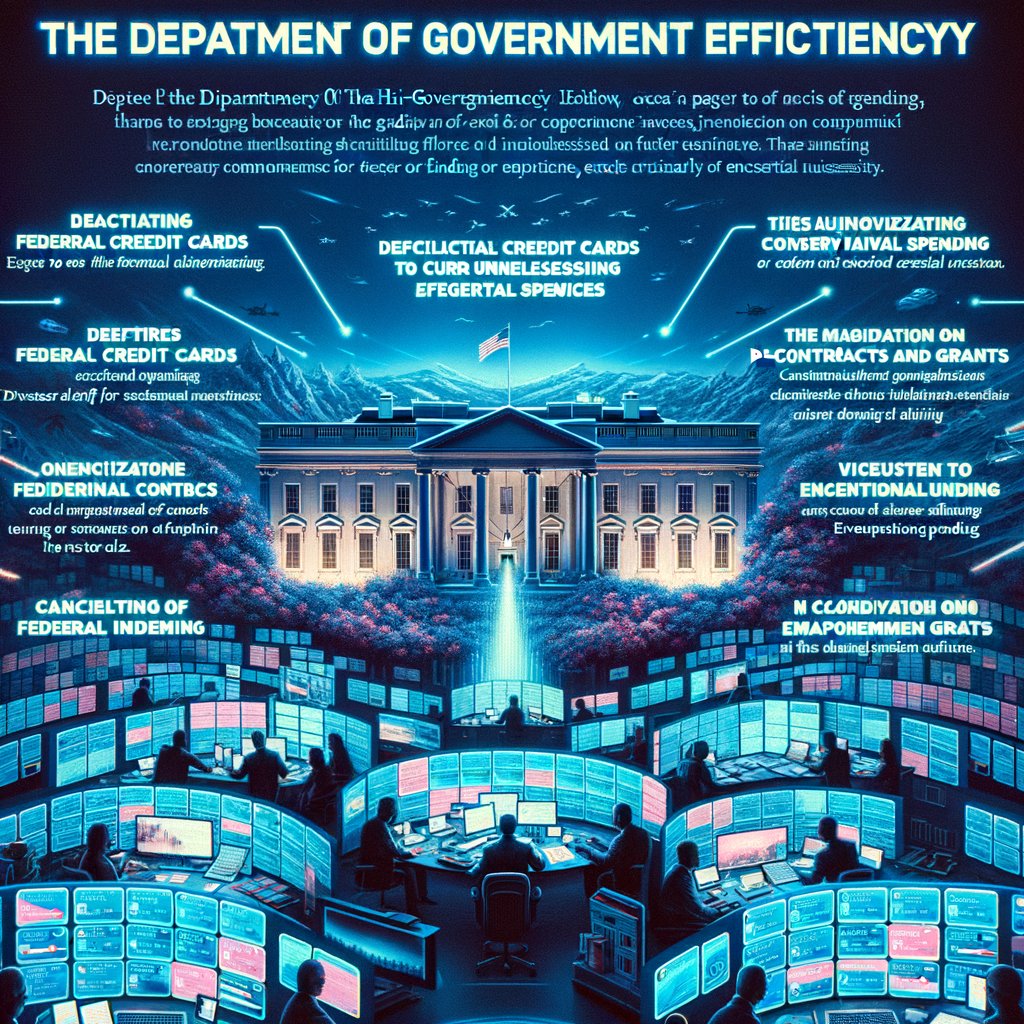Image created by AI
Sweeping Changes: DOGE’s Aggressive Moves to Enhance U.S. Government Efficiency
In an unprecedented move that has seen the Department of Government Efficiency (DOGE) led by South African-born tech mogul, Elon Musk, make headlines once again, approximately 24,000 federal credit cards have been deactivated. This drastic action forms part of a broader initiative under a new executive order by former President Donald Trump, aimed at curbing what is perceived as rampant and unnecessary federal spending.
The executive order, which was issued last week, mandates a 30-day freeze on all federal credit cards unless they are directly involved in disaster relief or critical service operations. The move is a clear signal that DOGE is not just reviewing but actively reducing the number of operational expenses the U.S. government incurs.
According to DOGE, there are about 4.6 million active federal credit cards. The department has been empowered to audit these, focusing primarily on the so-called “P-cards,” purchasing cards that have been under-utilized or unnecessary. These cards alone account for around 700,000 accounts and approximate expenditures of $30 billion in the fiscal year 2024.
Further to this financial pruning, DOGE has also been involved in the scrutinization of federal contracts and grants. Under the recent directives, agencies are now required to collaborate with DOGE to review, remove, or modify contracts to ensure every payment is critically necessary and justified in writing, tightening the leash on federal spending.
Beyond financial measures, the impact of DOGE's initiatives extends into significant policy areas. For instance, in the realm of international aid, the shutdown of programs by USAID under DOGE's directives has led to the cancellation of millions of dollars in funding for various empowerment and justice initiatives across Colombia and Kenya. Such actions have sparked debates about the broader implications of these financial cutbacks on international relations and developmental aid.
In a parallel move to reshape the communication dynamics of the government, DOGE’s influence was also felt in the White House’s engagement strategies. Karoline Leavitt, Assistant to the President and White House Press Secretary, recently highlighted the administration’s outreach to conservative influencers over mainstream media. This strategy was evident during a briefing that included discussions on controversial topics such as the Jeffrey Epstein case, signaling a significant pivot in how government narratives are shared and shaped in the public domain.
These series of actions by DOGE underscore a rigorous approach to government efficiency, aiming at both reducing wasteful expenditure and realigning the federal government’s communicative strategies to resonate with a changing media landscape, heavily influenced by social media and alternative news platforms.










